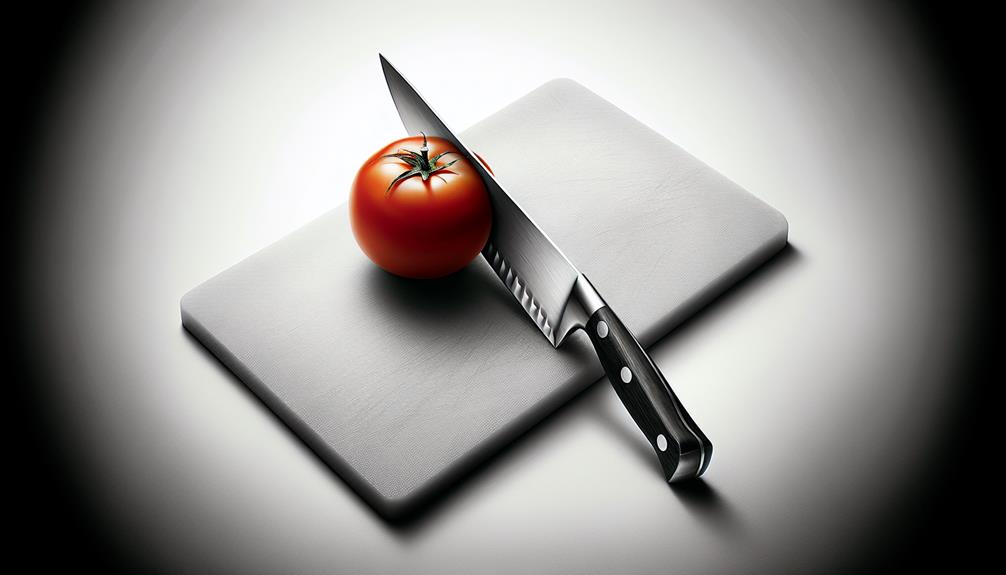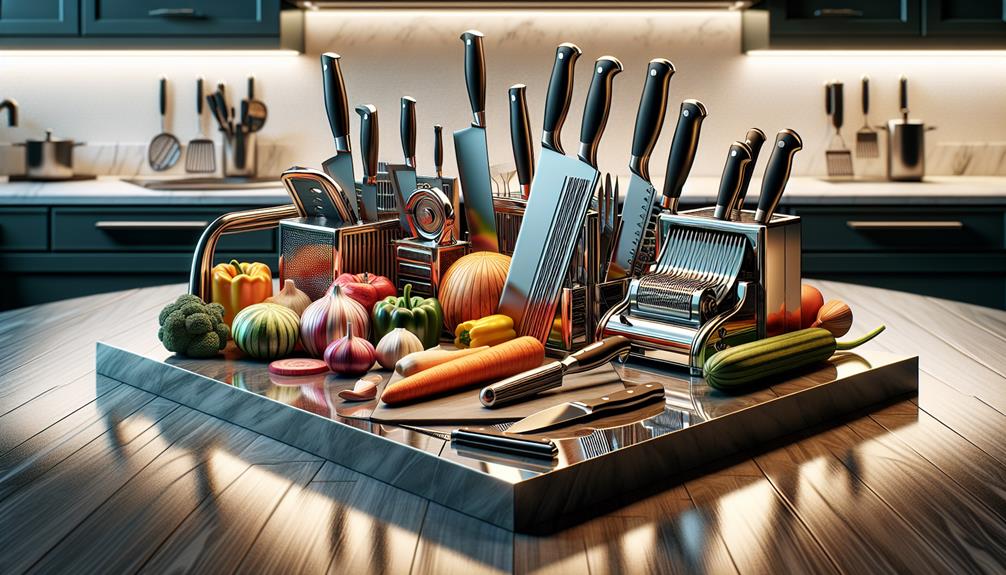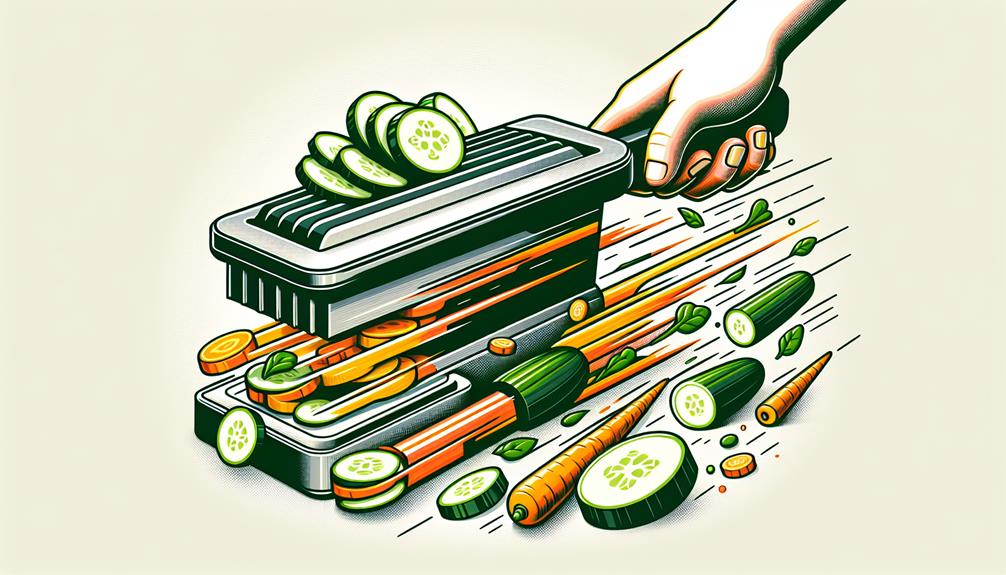When it comes to modern cookware, you're likely wondering what materials can withstand the heat. You've got options, but not all are created equal. You're about to discover the top three heat-resistant materials that'll take your cooking to the next level. From stainless steel's corrosion resistance to hard anodized aluminum's balance of heat conduction and durability, each material has its unique strengths. But which one will reign supreme for your cooking style? The answer lies in understanding their distinct advantages and limitations – and that's exactly what you're about to find out.
Heat Resistant Materials Compared
When it comes to choosing the right cookware, you're likely to encounter several heat-resistant materials, each with its own strengths and weaknesses, including stainless steel, hard anodized aluminum, cast iron, and copper. As you navigate this material hierarchy, you'll soon realize that each option presents performance tradeoffs. For instance, stainless steel offers excellent corrosion resistance and durability, but it can be a poor heat conductor. On the other hand, copper excels at heat distribution, but it's prone to reacting with acidic foods and can be expensive.
Hard anodized aluminum strikes a balance between heat conduction and durability, but it may not be non-stick friendly. Cast iron, with its excellent heat retention, requires seasoning to prevent rust and can be heavy. You'll need to weigh these tradeoffs against your cooking style and preferences. If you prioritize durability, stainless steel or cast iron might be the way to go. If heat conduction is your top concern, copper or hard anodized aluminum could be the better choice. By understanding the strengths and weaknesses of each material, you can make an informed decision that suits your cooking needs.
Durability in High-Temperature Cooking
As you weigh the tradeoffs between heat-resistant materials, you're likely to prioritize durability in high-temperature cooking, especially if you frequently sear meat or cook at extremely high heat. When cooking at extreme temperatures, you need a material that can withstand thermal shock, which occurs when a material is suddenly exposed to drastic temperature changes. This is essential because thermal shock can cause materials to crack, warp, or shatter.
When evaluating durability, consider your cooking techniques. Do you use high-heat searing, or do you prefer low-and-slow cooking methods? If you're a high-heat cook, you'll want a material that can handle rapid temperature changes without compromising its structure. Look for materials that can maintain their integrity even when exposed to sudden temperature fluctuations.
Ultimately, a durable heat-resistant material will give you the confidence to experiment with new cooking techniques and recipes, knowing that your cookware can handle the heat. By prioritizing durability, you'll be able to cook with precision and control, achieving restaurant-quality results in the comfort of your own kitchen.
Choosing the Right Material Matters
You'll face a multitude of material options, each with its unique strengths and weaknesses, so selecting the right one is essential to achieving peak cooking performance. Your material preferences will greatly impact the overall cooking experience, and it's crucial to consider your cooking philosophy when making a decision. Do you prioritize speed and efficiency, or do you focus on slow-cooked meals that simmer for hours? Are you a fan of high-heat searing, or do you prefer gentle, low-temperature cooking?
Considering your cooking style and the types of dishes you frequently prepare will help you narrow down the best material for your cookware. For instance, if you're a fan of stir-fries and quick sautés, a heat-conductive material like copper or aluminum might be the way to go. On the other hand, if you're a slow-cooker aficionado, a durable, heat-resistant material like stainless steel or cast iron could be the better choice. By aligning your material selection with your cooking philosophy, you'll be able to unlock the full potential of your cookware and take your cooking to the next level.
Frequently Asked Questions
Can Heat Resistant Materials Be Used for Outdoor Cooking and Camping?
When you're planning a camping trip, you're probably wondering if heat resistant materials can withstand outdoor cooking. The answer is yes, they're perfect for portable grills and camping gear, allowing you to cook safely in the great outdoors.
Do Heat Resistant Materials React With Acidic or Salty Foods?
When cooking with acidic or salty foods, you'll want to verify that the heat resistant materials you're using won't react with them, compromising food chemistry. Look for materials with high purity to minimize reactions and preserve flavors.
Are Heat Resistant Materials Safe for Microwave and Oven Use?
When you use heat-resistant materials, you're probably wondering if they're safe for microwave and oven use. Fortunately, most materials are designed with microwave safety in mind, but always check thermal limits to avoid damage or hazardous reactions.
Can Heat Resistant Materials Be Washed in a Dishwasher?
You'll be happy to know you can wash heat-resistant materials in a dishwasher, but check the manufacturer's guidelines for Dishwasher Safety. Opt for Gentle Cleaning cycles to protect your cookware stays in top condition.
Do Heat Resistant Materials Retain Heat After Cooking Is Complete?
When you're done cooking, you'll notice that some materials retain heat better than others due to their thermal mass. You'll find that heat resistant materials, like cast iron, excel at heat retention, keeping your food warm for a longer period.
Conclusion
You've weighed the pros and cons of stainless steel, hard anodized aluminum, and cast iron. Now, it's time to pick the perfect cookware for your kitchen. Consider your cooking style, the types of dishes you prepare, and the level of maintenance you're willing to commit to. With the right material, you'll be cooking like a pro in no time. Make an informed decision, and get ready to take your culinary skills to the next level!





